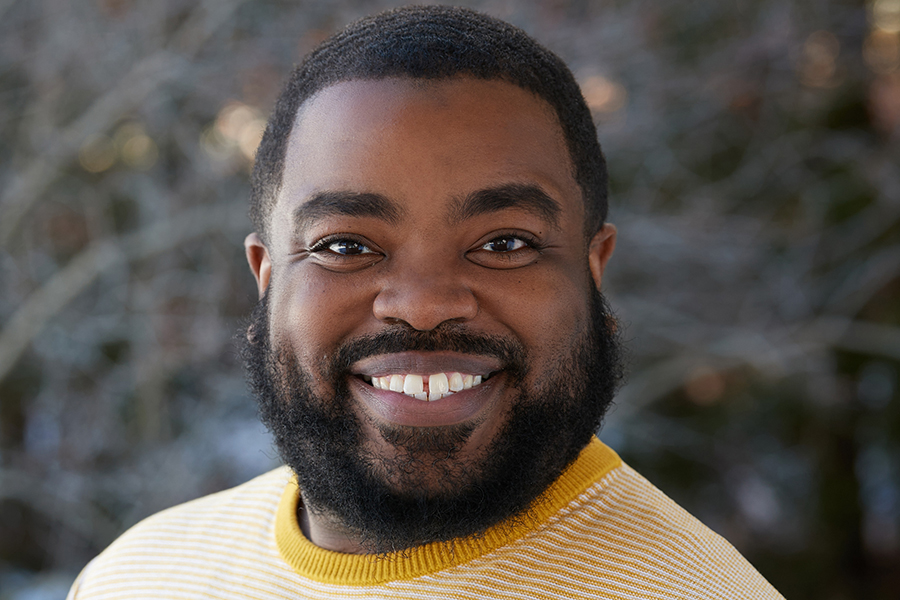Faculty Profile: Dominick Quinney
Empowering students to make connections through their coursework, especially outside their comfort zones, is part of “the beauty of ethnic studies.”

It’s on every single syllabus prepared by assistant professor of ethnic studies Dr. Dominick Quinney: when you come to class, make sure you bring critical thinking, an open mind and a sense of humor to every class.
“I understand that some of the material I teach can be heavy, it can be scary or daunting,” he says. “If we can laugh, it lets students know that things are OK or are going to be OK. If you can laugh, that’s a space where you can connect with people.”
Connecting with people is an especially strong professional interest for Quinney. He stresses to his students that while he may be the professor, in the classroom he is also a student—and they are all educators, responsible for each other as teachers and learners. “We all have a way of seeing the world and we all bring different truths to the classroom experience,” he explains. “Those different truths help us better understand the material and better understand each other.”
Quinney uses a variety of techniques to help students master the theories and concepts involved in ethnic studies. For example, Quinney notes that in one course, students study intersectionality (the concept that humans, based on the layering of their social identities, have a unique way to understand the human experience). They then watched the 2011 film “Pariah” about a teenager who was also African American, female and lesbian. “The film was a tool for the students to pair examples with the concepts we read about,” Quinney says. “That’s my goal, to connect reading to real-world systems.”
As his students learn more, Quinney knows they are eager to join conversations involving race —and at the same time are more aware that such interactions can be tough. As a result, he focuses his own research on finding and developing ways for students to use their coursework to make connections, especially outside their comfort zones.
Talking about race and racism, particularly in diverse groups, “is almost like learning a foreign language,” Quinney explains. “When you start out, you’re going to be hesitant. You’re going to say the wrong thing, or you might do the wrong thing, or be misunderstood.”
He continues, “That’s why we’re in a classroom. We have these same conversations, but by doing this in class, we’ll make fewer mistakes and get better at handling the mistakes that do happen.”
A Better Understanding
Ethnic studies isn’t just about the ability to communicate, however.
“Race, gender, sexuality, religion are layers that make us who we are,” Quinney reflects. “As we peel back the layers, we can see how those layers make a person. That’s the core of ethnic studies, to recognize humanity.”
With that attitude—not to mention his identities as a first-generation college student, African American male, popular music geek and professor who prioritizes a good laugh—Quinney has seen a steady increase in ethnic studies majors and minors at Albion.
“The beauty of ethnic studies is that it’s interdisciplinary,” he says. “There’s space for it in biology, English, business. It allows us to understand humanity better. Students make the connections, whether they’re going to be a physician or tax accountant or whatever they’re going to be.”